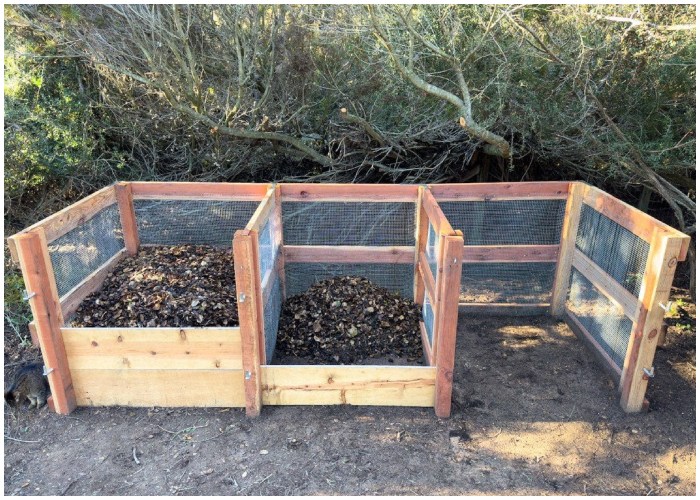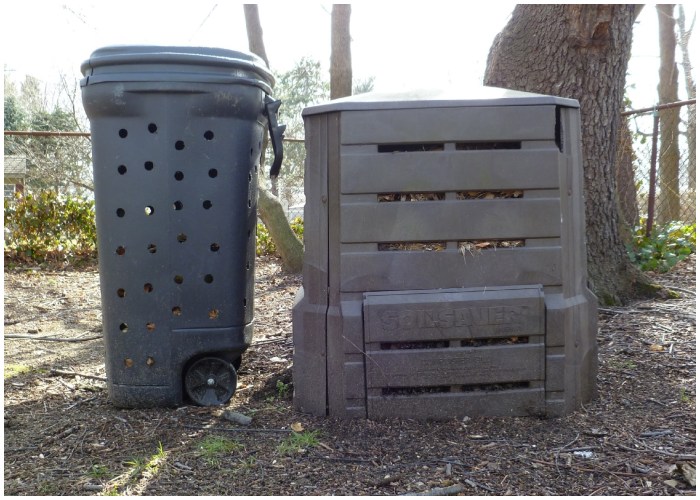Composting is a great way to recycle organic waste, reduce carbon footprint, and enrich your garden with nutrient-dense soil. But what’s the best way to start? While you can buy pre-made compost bins, building your DIY compost bin is cost-effective, customizable, and surprisingly simple. This article reviews the best DIY compost bins for every type of gardener, from the eco-conscious beginner to the seasoned pro.
As an experienced gardener, I’ve tried and tested various composting methods. Whether dealing with a small garden or managing a larger yard, these DIY compost bin options are practical, easy to build, and adequate for composting needs.
What Are the Benefits of DIY Compost Bins?
Creating your compost bin offers many advantages. You can tailor the size, shape, and materials based on the available space and repurpose common materials, reducing the cost and environmental impact of your bin. A homemade compost bin is also easier to maintain, giving you complete control over how your compost develops. Best of all, DIY options can be just as functional and efficient as store-bought bins, often at a fraction of the price.
Here are five DIY compost bins I’ve tried, ranked, and reviewed to help you decide which one best suits your needs.

1. The Pallet Compost Bin
Materials: Wooden pallets, nails, hammer
Skill Level: Beginner
Cost: Low
The pallet compost bin is one of the most straightforward and accessible DIY compost options. It’s made from repurposed wooden pallets, which can often be found for free at local stores, warehouses, or construction sites. By standing the pallets upright and nailing them together, you can easily create a sturdy compost bin that allows for excellent airflow—one of the critical factors for efficient composting.
Pros:
- Cheap and eco-friendly: You can typically source the pallets for free, making it a budget-friendly option.
- Good airflow: The gaps between the slats allow plenty of oxygen to reach the compost, helping the decomposition process.
- Easy to build: It requires minimal tools and time.
Cons:
- Less contained: The open design can attract critters or pests.
- Rustic look: It may not suit everyone’s aesthetic preferences for their garden.
It is best for Beginner gardeners who want a low-cost, eco-friendly composting option.
2. Wire Mesh Compost Bin
Materials: Wire mesh, stakes, wire cutters
Skill Level: Beginner
Cost: Low
The wire mesh compost bin is another simple and effective DIY project. By forming a cylinder out of the wire mesh and securing it with stakes, you can create a compost bin that allows maximum airflow. This bin type is excellent for faster decomposition, as the wire allows air to circulate through the pile from all sides.
Pros:
- Affordable: Wire mesh is inexpensive and widely available.
- Excellent ventilation: The open design encourages faster breakdown of materials.
- Easy to move: You can shift the mesh bin to turn your compost pile or start a new one.
Cons:
- No lid: The open top can let in too much rain or snow and invite pests.
- Fragile: The wire mesh can warp over time or during handling.
This is best for Gardeners looking for a highly breathable bin that promotes rapid composting.
3. Trash Can Compost Bin
Materials: Plastic trash can drill, lid
Skill Level: Beginner
Cost: Low
If you’re looking for a compact composting solution, the trash can compost bin is ideal for smaller spaces. You only need a sturdy plastic trash can with a tight-fitting lid to build this bin. Drill holes around the can’s sides, bottom, and lid to allow airflow. This bin is perfect for apartment balconies or small urban gardens.
Pros:
- Compact: Ideal for small spaces or urban gardeners.
- Contained: The lid keeps pests out, and the compost stays dry.
- Affordable: Trash cans are cheap and easy to find.
Cons:
- Limited capacity: The small size means it won’t hold as much compost.
- Manual turning required: You must shake or stir the bin to promote decomposition.
Best for: Urban gardeners or those with limited space who want a simple, compact composting solution.

4. The Three-Bin Compost System
Materials: Wooden planks, screws, hinges
Skill Level: Intermediate
Cost: Moderate
The three-bin compost system is an excellent choice for gardeners with large spaces and high composting needs. This setup involves three separate bins, allowing you to turn and transfer the compost as it matures. The first bin holds fresh materials, the second is for halfway-decomposed compost, and the third contains finished compost.
Pros:
- Efficient: It allows for continuous composting, as you can always add new material to one bin while the others decompose.
- Organized: Keeps your composting process neat and easy to manage.
- Large capacity: Perfect for those with more extensive gardens or yard waste.
Cons:
- Takes up space: A large area is required to accommodate the three bins.
- More complex: Requires more materials and construction time than straightforward bins.
Best for Serious gardeners with a lot of space who need to compost large quantities of organic waste.
5. Compost Tumbler
Materials: Metal or plastic drum, axle, hinges
Skill Level: Intermediate
Cost: Moderate to high
The compost tumbler is one of the most efficient DIY compost bins for fast composting. Using a rotating drum mounted on an axle, you can quickly turn the compost to speed up decomposition. While this bin requires more effort to build, it’s perfect for gardeners who want to minimize the time and effort spent turning compost by hand.
Pros:
- Fast results: Turning the compost regularly speeds up the process.
- Contained and neat: It keeps the compost enclosed, preventing odors and deterring pests.
- Easy to use: The rotating design makes turning the compost simple and mess-free.
Cons:
- More costly: Requires more materials and effort to build.
- Limited capacity: Typically holds less material than other DIY compost bins.
Best for: Gardeners looking for a fast, efficient, neat composting solution.
Choosing the Right DIY Compost Bin
These DIY compost bins offer unique benefits depending on your space, budget, and composting goals. For beginners, the pallet compost bin and wire mesh bin provide low-cost, easy-to-build solutions. If you need something more compact, the trash can compost bin is perfect for small spaces. For larger-scale composting, the three-bin system or compost tumbler will help you efficiently manage your garden’s organic waste.
Building a DIY compost bin helps you reduce waste and produces rich, nutritious soil that will help your garden thrive. No matter your choice, starting your composting journey is a step toward a more sustainable garden.